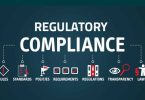Best Practices for Optimal Efficiency
Contracts serve as the backbone of business interactions, defining the terms and agreements between your company and various stakeholders such as customers, employees, partners, or suppliers. Effective contract management is crucial for mitigating risks, reducing potential errors, and ensuring seamless collaboration. In this article, we’ll delve into eleven exemplary practices that can significantly enhance your contract management processes.

1. Handpick the Ideal Contract Manager:
A proficient contract manager should possess certifications, relevant experience, and a comprehensive understanding of contract laws. Exceptional communication and writing skills are paramount for effective interaction with partners.
2. Involve the Legal Department in Contract Discussions:
Consider involving the legal department or hiring a lawyer during contract negotiations, particularly with significant business partners or vendors. Legal professionals bring expertise to the table, ensuring secure and effective contract implementation.
3. Vigilantly Track Important Dates:
Stay vigilant about crucial dates such as negotiations, meetings, and contract expiration dates. Missing deadlines can strain partnerships and result in lost opportunities. Timely renewal is particularly vital, as it often comes with discounts or favorable rates.
4. Implement a Systematic Contracting Approach:
Standardize contract management by establishing systematic stages. Provide clear instructions to employees managing contracts, incorporating mandatory terms, conditions, and language guidelines. This approach ensures consistency and prevents deviations from company standards.
5. Schedule Regular Compliance Reviews:
Conduct compliance reviews periodically after establishing a contract. These reviews offer enhanced visibility, ensuring that your company consistently receives the benefits outlined in the contract. Regular assessments contribute to sustained contractual compliance.
Contracts serve as the lifeblood of business relationships, defining agreements and expectations between entities. In the rapidly evolving landscape of the 21st century, embracing modern practices is essential for efficient contract management. This article explores key practices to enhance contract management, ensuring seamless collaborations, minimizing risks, and optimizing overall business efficiency.
6. Manageable Deadlines: Meeting deadlines is a crucial aspect of any contract, yet flexibility is equally vital. In situations where deadlines become challenging, consider renegotiating and mutually agreeing on adjusted timelines. Prioritize the quality of outcomes over rushed deliveries, fostering a cooperative environment rather than pressuring employees for subpar results.
7. Software Use: While tradition may have rooted many companies in paper-based contract management, the benefits of digital solutions are undeniable. Contract management software automates data retrieval, reduces workload, and organizes information efficiently. Accessible from anywhere, these tools transform the time-consuming into the instantaneous, offering a secure and streamlined approach to contract management.
8. Clearly Define Goals and Standards: Prevent misuse of contracts by establishing clear goals and standards with each party involved. Communication is paramount—define the purpose of collaboration, mutual benefits, and success metrics. This clarity ensures both parties comprehend their responsibilities, fostering a cooperative environment. Termination becomes an option if terms are consistently disregarded.
9. Securing Information while Maintaining Visibility: Recognize the sensitivity of certain contract documents and restrict access accordingly. Employ secure storage systems, such as cloud-based solutions, with layered access verification. This not only enhances document security but also ensures accessibility. Consider upgrading systems to classify documents based on importance and confidentiality levels, tailoring access accordingly.
10. Monitor the Financial Health of Your Business: When entering contracts, assess the financial implications and budgetary considerations. Negotiate fees to align with budgetary constraints, and evaluate if partnering with a vendor enhances profitability. Regularly monitor financial metrics during contract compliance reviews to ensure the sustainability of your business’s financial health.
11. Monitor Performances: Post-contract establishment, continuous monitoring of both parties’ performances is imperative. Clearly define Key Performance Indicators (KPIs) and communicate potential penalties for non-compliance. Regular assessments ensure that partners contribute to agreed-upon goals, providing insights for contract extension, renewal, or, if necessary, termination due to poor performance.
Contract Management Strategies for the Digital Era:
Why Do You Need a Contract Management Strategy? In an era of increasing digitization, a robust contract management strategy is indispensable. Cybersecurity threats necessitate strict control over contracts to prevent data breaches. Document security becomes paramount, and a multi-level password access system significantly reduces the risk of hacking and ransomware attacks.
Implementing a centralized repository for contracts and related documents, accessible only by authorized personnel, reduces liability by eliminating outdated information. Automation of routine tasks ensures efficient use of resources, and timely reminders aid in tracking contracts. Overall, a well-crafted contract management strategy ensures data protection, efficiency, and adherence to compliance standards.
How to Improve Your Contract Management Strategy: To enhance your contract management strategy, consider the following steps:
1) Organize Contract Management Workflows in a Centralized Location: Streamline the contract lifecycle process by utilizing a centralized workflow management system. This allows multiple parties to participate in contract management stages efficiently. Access collaborative contract management platforms that facilitate the creation, editing, and storage of contract data from a centralized location.
2) Plan Your Contract Management Strategy with Your Staff in Mind: Ensure your contract management strategy aligns with the needs of your team and other stakeholders involved in the process. Collaborative planning and implementation create a sense of shared purpose, motivating teams to actively participate in the contract management workflow.
3) Maintain the Plan Once Implemented: After successful implementation, maintain your contract management strategy. Automated systems keep contracts on track and help create high-quality contracts. Flexibility and transparency in your strategy allow adjustments to be made when circumstances change, ensuring sustained efficiency.
4) Analyze Your Data: Data analysis provides insights into the effectiveness of your strategy. Implement automated systems that can swiftly and accurately identify errors, saving time and improving accuracy. Contract management software equipped with data analysis capabilities enhances decision-making and identifies areas for improvement.
5) Research on Contract Management Software: Choose contract management software that aligns with your business needs. Look for user-friendly tools that fulfill your requirements and facilitate a smooth setup process. Thorough research helps in avoiding software that overpromises and underdelivers.
Conclusion: Effectively managing contracts is a critical component of modern business practices. Adopting contemporary strategies, leveraging technology, and ensuring a collaborative approach contribute to streamlined workflows, minimized risks, and optimal business efficiency. By integrating these best practices, businesses can navigate the complexities of contract management with confidence, fortifying partnerships and thriving in the dynamic digital landscape of the 21st century.






